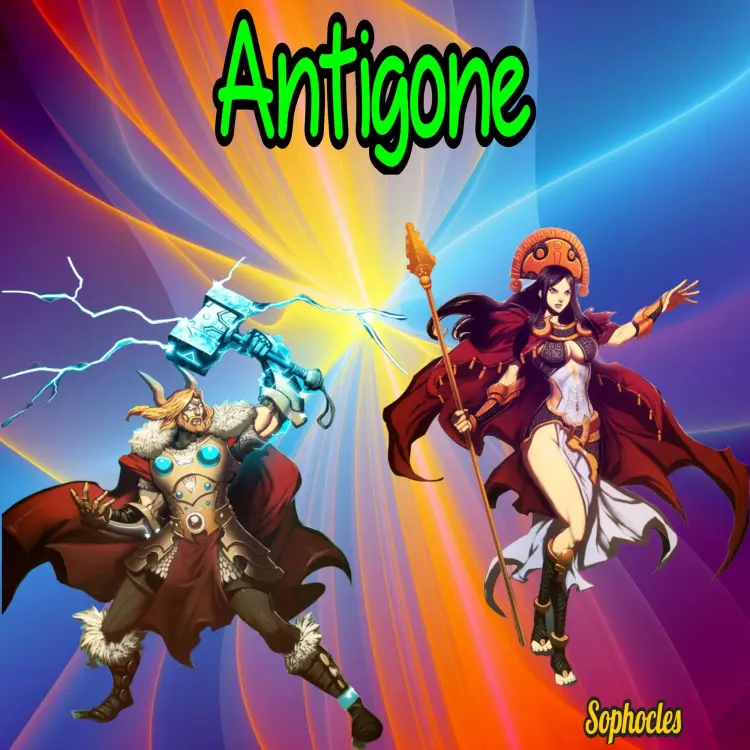
Antigone
Sophocles
Unabridged
1 hora 14 minutos
Nota: La reproducción de los audiolibros o de las obras de audio en las respectivas plataformas, por ejemplo Spotify, puede generar gastos. Lismio no tiene ninguna influencia sobre qué audiolibros y obras de audio están disponibles en el servicio.
Algunos artículos contienen enlaces de afiliados (marcados con un asterisco *). Si hace clic en estos enlaces y compra productos, recibiremos una pequeña comisión sin coste adicional para usted. Su apoyo ayuda a mantener este sitio en funcionamiento y a seguir creando contenidos útiles. Gracias por su apoyo.
De la editorial
Antigone by Sophocles Audiobook is an Athenian tragedy written by Sophocles in (or before) 441 BC and first performed at the Festival of Dionysus of the same year. It is thought to be the second oldest surviving play of Sophocles, preceded by Ajax, which was written around the same period. The play is one of a triad of tragedies known as the three Theban plays, following Oedipus Rex and Oedipus at Colonus. Even though the events in Antigone occur last in the order of events depicted in the plays, Sophocles wrote Antigone first. The story expands on the Theban legend that predates it, and it picks up where Aeschylus' Seven Against Thebes ends. The play is named after the main protagonist Antigone.
Synopsis:
Prior to the beginning of the play, the brothers Eteocles and Polynices, leading opposite sides in Thebes' civil war, died fighting each other for the throne. Creon, the new ruler of Thebes and brother of the former Queen Jocasta, has decided that Eteocles will be honored and Polynices will be in public shame. The rebel brother's body will not be sanctified by holy rites and will lie unburied on the battlefield, prey for carrion animals,[a] the harshest punishment at the time. Antigone and Ismene are the sisters of the dead Polynices and Eteocles.
In the opening of the play, Antigone brings Ismene outside the palace gates late at night for a secret meeting: Antigone wants to bury Polynices' body, in defiance of Creon's edict. Ismene refuses to help her, not believing that it will actually be possible to bury their brother, who is under guard, but she is unable to stop Antigone from going to bury her brother herself.
Synopsis:
Prior to the beginning of the play, the brothers Eteocles and Polynices, leading opposite sides in Thebes' civil war, died fighting each other for the throne. Creon, the new ruler of Thebes and brother of the former Queen Jocasta, has decided that Eteocles will be honored and Polynices will be in public shame. The rebel brother's body will not be sanctified by holy rites and will lie unburied on the battlefield, prey for carrion animals,[a] the harshest punishment at the time. Antigone and Ismene are the sisters of the dead Polynices and Eteocles.
In the opening of the play, Antigone brings Ismene outside the palace gates late at night for a secret meeting: Antigone wants to bury Polynices' body, in defiance of Creon's edict. Ismene refuses to help her, not believing that it will actually be possible to bury their brother, who is under guard, but she is unable to stop Antigone from going to bury her brother herself.
















